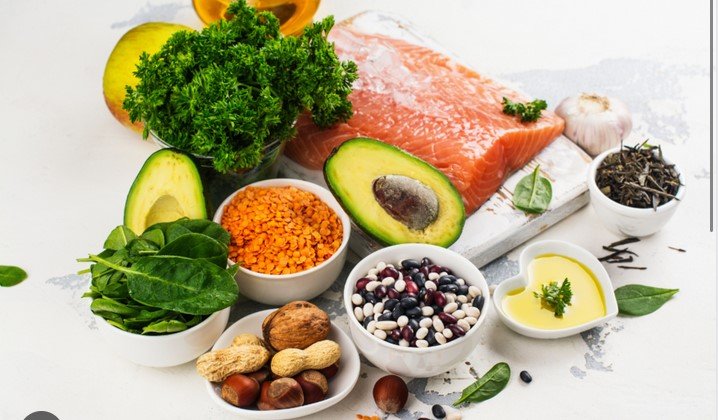Common Nutrition Myths Debunked
Nutrition myths are everywhere. From social media to magazines, it’s easy to get caught up in misconceptions about what’s healthy and what isn’t. Unfortunately, many of these myths can lead to poor eating habits. In this post, we’ll debunk some of the most common nutrition myths and clarify the truth about healthy eating.

Myth #1: Carbs Are Bad for You
Many people believe that carbohydrates are unhealthy and should be avoided, especially if they are trying to lose weight. However, this is far from the truth. Carbohydrates are a necessary part of a balanced diet. They provide energy for the body, especially for the brain and muscles. The problem arises when people consume too many refined carbs, like white bread and sugary snacks, which can cause blood sugar spikes and lead to weight gain.
Instead of cutting carbs altogether, focus on the quality of the carbs you eat. Choose whole grains, fruits, and vegetables. These foods are rich in fiber, vitamins, and minerals, and they can actually help you maintain a healthy weight. So, carbohydrates are not the enemy, but rather the type of carbs you choose makes all the difference.
Myth #2: All Fats Are Unhealthy
Another common myth is that all fats are bad for you and should be avoided. While it’s true that trans fats and excessive saturated fats can raise cholesterol levels and increase the risk of heart disease, healthy fats are crucial for your overall health. Healthy fats, such as those found in avocados, nuts, seeds, and olive oil, support brain function, promote healthy skin, and help absorb vitamins A, D, E, and K.
To get the benefits of fat, opt for unsaturated fats and avoid processed foods that are high in trans fats. A balanced diet that includes healthy fats is essential for maintaining good health. Therefore, not all fats are harmful, only the unhealthy types.
Myth #3: Eating Late at Night Causes Weight Gain
A popular myth is that eating late at night will lead to weight gain. Many people believe that consuming food after a certain hour will cause the body to store it as fat. However, the timing of your meals is not as important as the total number of calories you consume during the day. Weight gain occurs when you eat more calories than your body needs, regardless of the time.
What matters most is the quality of your food choices and portion sizes. If you’re hungry at night, choose healthy, light snacks like Greek yogurt or a handful of nuts instead of processed junk food. So, eating late won’t cause weight gain if you’re mindful of your overall calorie intake.
Myth #4: Detox Diets Cleanse Your Body
Detox diets have gained popularity, with many claiming to cleanse the body of toxins and improve health. However, your body already has built-in mechanisms for detoxification. The liver, kidneys, and digestive system naturally remove waste and toxins from the body. While it’s important to eat a healthy, balanced diet, there’s no need for extreme detox diets or fasting.
Instead of focusing on detox trends, focus on consuming whole foods, drinking plenty of water, and getting regular exercise. These habits support your body’s natural detox process. Therefore, the idea that detox diets are necessary for cleansing your body is a myth.
Myth #5: All “Low-Fat” Foods Are Healthy
The label “low-fat” often leads people to believe that a product is healthy, but this is not always the case. Many low-fat products are loaded with added sugars, artificial sweeteners, or other unhealthy ingredients to compensate for the lack of fat. In fact, some fats are essential for good health and should not be completely eliminated from your diet.
Instead of relying on low-fat processed foods, opt for whole, nutrient-dense foods that provide healthy fats, such as nuts, seeds, and fatty fish. These foods are not only good for your health but also help keep you full and satisfied. So, don’t be fooled by low-fat labels; always check the ingredient list to see what’s actually in the product.
Conclusion
Nutrition myths can easily lead to confusion and unhealthy eating habits. It’s important to understand that a balanced diet is about quality, not extremes. Carbs, fats, and even eating late at night aren’t inherently harmful as long as you make smart food choices. Similarly, focusing on whole foods, rather than relying on trendy detox diets or “low-fat” processed foods, will benefit your health in the long term. By debunking these common myths, you can make more informed choices and build a healthier, more sustainable eating plan.



